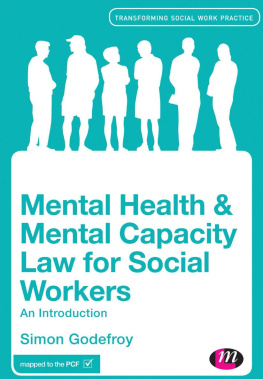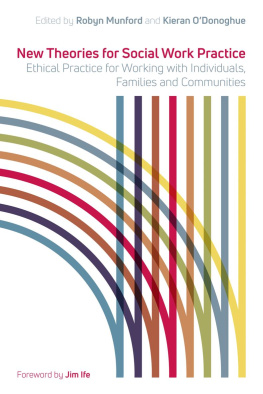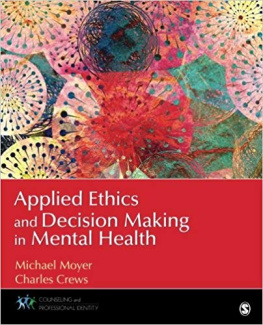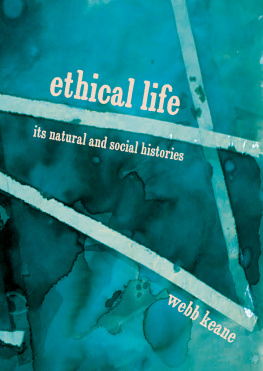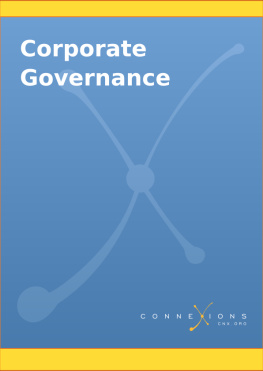The book is a refreshing illumination of not just ethics in social work practice, but social work practice itself. The use of paradoxes is a very apt way to characterise the daily choices which face practitioners. It is also a moving read, appropriate for not just students but experienced and senior practitioners alike.
Jan Fook, Leeds Trinity University, UK
The reality that social workers inevitably and unwittingly cause harm leads to confusion and distress. Merlinda Weinbergs book dynamically explains this and other obstacles to clear thinking in ethical conflicts. This book brings innovative thinking and suggestions for systemic and individual remedies a game-changer for discussions of ethics in all settings. It is enlightening and a brilliant aid to teaching, supervision and direct practice.
Barrie Levy, University of California, Los Angeles, USA
This book is an exciting and much needed development in the field of ethics. For practitioners, academics and students seeking an alternative, more politicised and critical understanding of ethical practice, this research-based text offers sophisticated, yet highly accessible, analytical tools to navigate the contradictions inherent in the social work role with the aim of reducing ethical trespass.
Christine Morley, University of the Sunshine Coast, Australia
The author has deftly and lucidly engaged the vast complexity of ethical deliberation with all its inherent paradoxes, dilemmas, and trespasses, by weaving germane and critical theory with vivid, detailed and compelling lived social work examples. This book is about socially just ethical deliberations, taking the reader well past the ethical decision-making tradition, into the gritty and contextually nuanced world where social workers and clients, while unequal in their socially and professionally authorized power, are nonetheless both embedded and entangled a truly impressive feat.
Marshall Fine, Wilfrid Laurier University, Canada
Paradoxes In Social Work Practice
In the helping professions, codes of ethics and decision-making models have been the primary vehicles for determining what constitutes ethical practice. These strategies are insufficient since they assume that shared meanings exist and that the contradictory universal principles of codes can be reconciled. Also, these tools do not emphasize the significance of context for ethical practice.
This book takes a new critical theoretical approach, which involves exploring how social workers construct what is ethical in their work, especially when they are positioned at the intersection of multiple paradoxes, including that of two opposing responsibilities in society: namely, to care for others but also to prevent others from harm. The book is built on narratives from actual front-line workers and therefore is more applicable and grounded for practitioners and students, offering many suggestions for sound practice. It illustrates that an understanding of ethics differs from worker to worker and is heavily influenced by context, workers values, and what they take up as the primary discourses that frame their perceptions of the profession. While recognizing the oppressive potential of social work, the book is rooted in a perspective that ethical practice can contribute to a more socially just society.
Merlinda Weinberg is Associate Professor in the School of Social Work at Dalhousie University in Canada. Prior to this she worked for 25 years as a front-line social worker, manager, consultant and practitioner in private practice.
Contemporary Social Work Studies
Series Editors:
Lucy Jordan, The University of Hong Kong, China and
Patrick OLeary, Griffith University, Australia
Series Advisory Board:
Lena Dominelli, University of Durham, UK
Jan Fook, South West London Academic Network, UK
Peter Ford, University of Southampton, UK
Lorraine Gutirrez University of Michigan, USA
Lucy Jordan, The University of Hong Kong, China
Walter Lorenz, Free University of Bozen-Bolzano, Italy
Patrick OLeary, Griffith University, Australia
Gillian Ruch, University of Southampton, UK
Sue White, University of Birmingham, UK
Contemporary Social Work Studies is a series disseminating high quality new research and scholarship in the discipline and profession of social work. The series promotes critical engagement with contemporary issues relevant across the social work community and captures the diversity of interests currently evident at national, international and local levels.
CSWS is located in the School of Social Sciences (Social Work Studies Division) at the University of Southampton, UK and is a development from the successful series of books published by Routledge in association with CEDR (the Centre for Evaluative and Developmental Research) from 1991.
Other titles in this series:
Decolonizing Social Work
Edited by Mel Gray, John Coates, Michael Yellow Bird and Tiani Hetherington
978-1-4094-2631-8
Intercountry Adoption
Edited by Judith L. Gibbons and Karen Smith Rotabi
978-1-4094-1054-6
For information about other titles in this series, visit www.routledge.com


